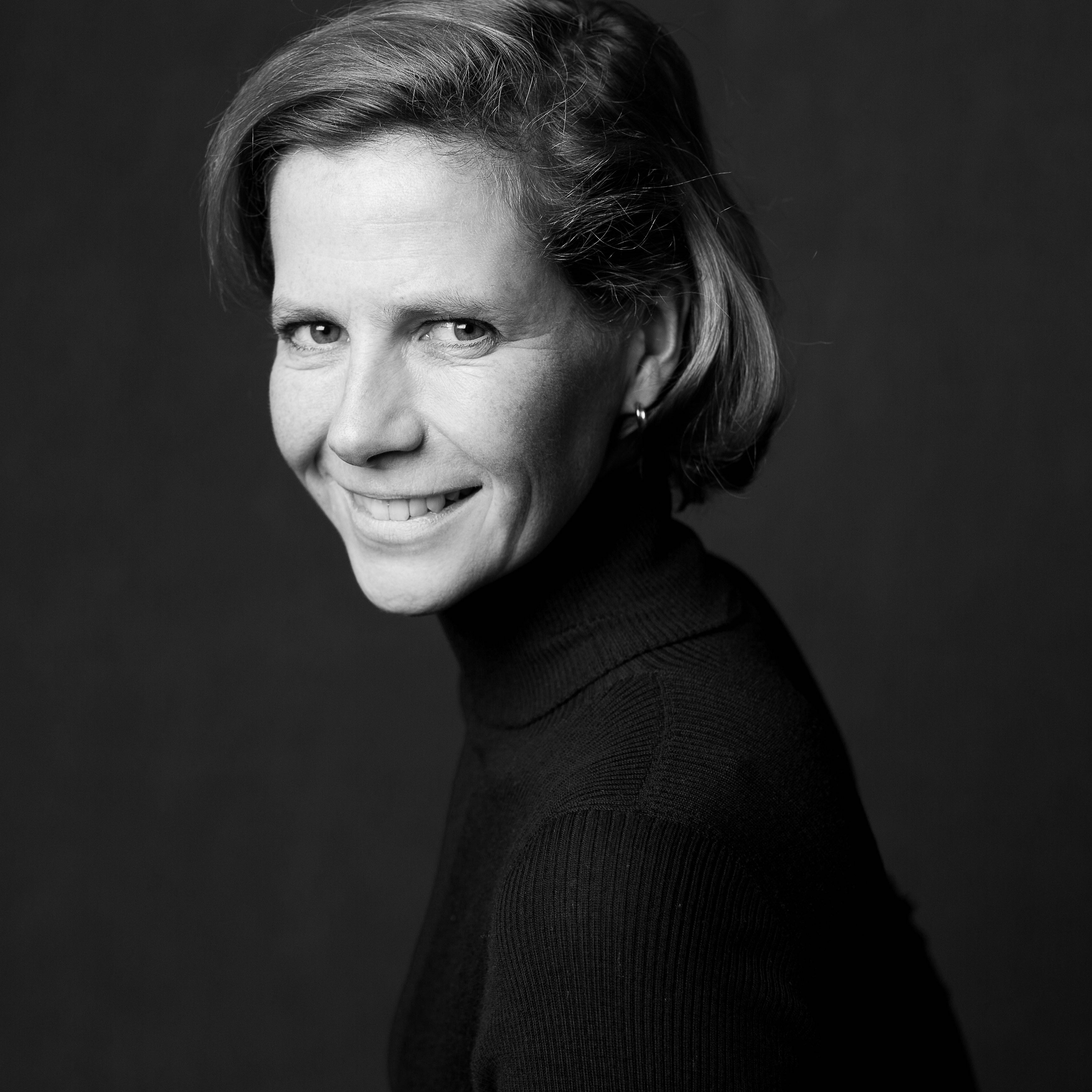
How do you study a language that has been dead for thousands of years and was never written down?
PROTO
The epic tale of how one ancient language went global, and the scientific quest to trace it back to its roots.
As the planet emerged from the last ice age, a language was born between Europe and Asia, by the Black Sea. This ancient tongue, which we call Proto-Indo-European, soon exploded out of its cradle, changing and fragmenting as it went, until its offspring were spoken from Scotland to China. Today those descendants constitute the world’s largest language family, the thread that connects disparate cultures: Dante’s Inferno to the Rig Veda, The Lord of the Rings to the love poetry of Rumi. Indo-European languages are spoken by nearly half of humanity. How did this happen?
Laura Spinney set out to answer that question, retracing the Indo-European odyssey across continents and millennia. With her we travel the length of the steppe, navigating the Caucasus, the silk roads and the Hindu Kush. We follow in the footsteps of nomads and monks, Amazon warriors and lion kings – the ancient peoples who spread these languages far and wide. In the present, Spinney meets the scientists on a thrilling mission to retrieve those lost languages: the linguists, archaeologists and geneticists who have reconstructed this ancient diaspora. What they have learned has vital implications for our modern world, since people and their languages are on the move again. Proto is a revelatory portrait of world history in its own words.
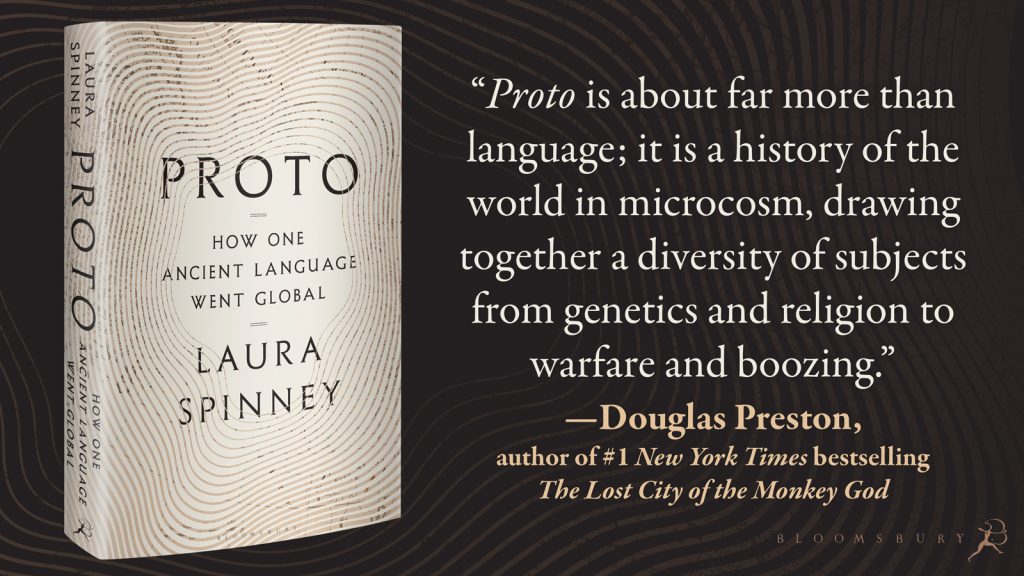
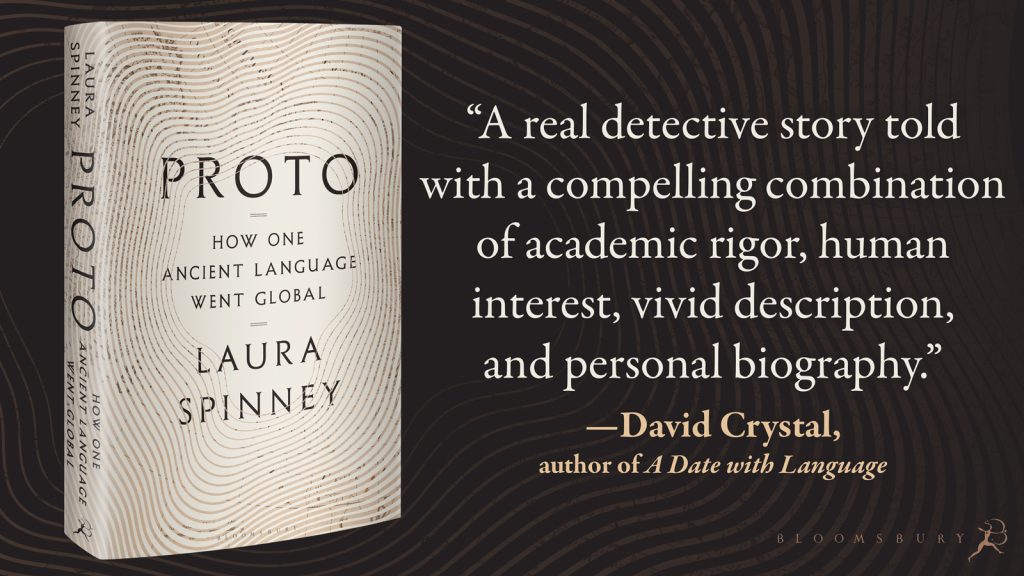
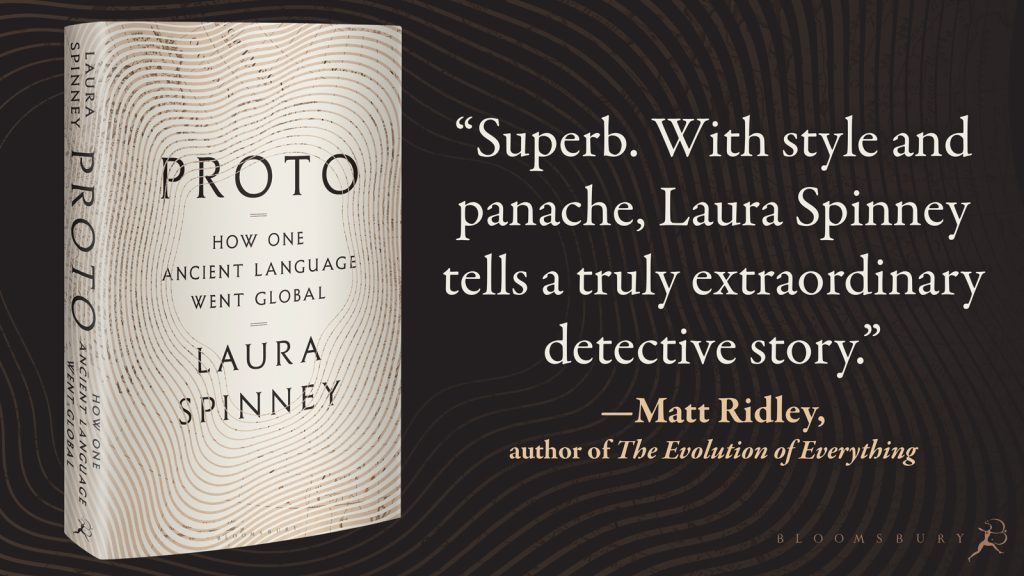
A magisterial feat
New Scientist
Enormously refreshing and readable
Literary Review
This rivets
Publishers Weekly
A GUARDIAN, NEW STATESMAN AND PROSPECT BOOK OF THE YEAR 2025
Shortlisted for Science Book of the Year 2025 by the German-language magazine Bild der Wissenschaft
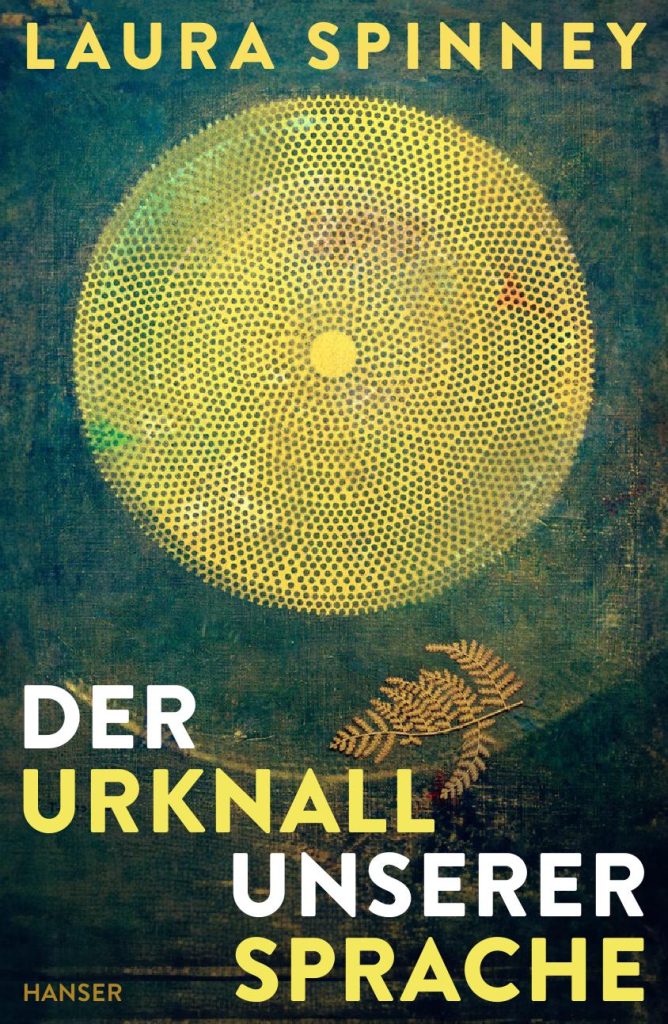
Publicist UK, Laura Meyer: Laura.N.Meyer@harpercollins.co.uk
Publicist US, Rosie Mahorter: Rosie.Mahorter@bloomsbury.com
